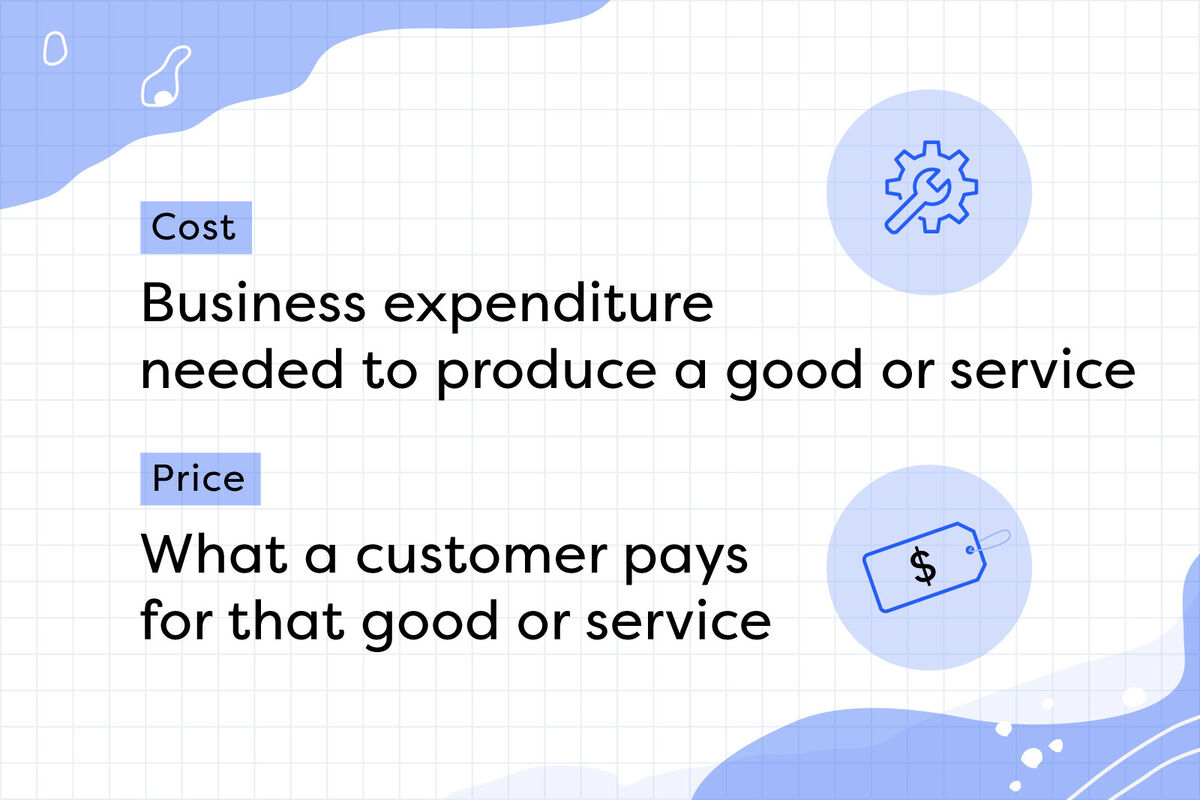
When an item has a high price, it costs too much. But if it has a high cost, does it price too much? Cost and price are both ways to describe the flow of money in economics, but they’re not always interchangeable — it depends on whether you’re the one buying or the one selling.
Cost: What the Company Paid to Make It
Economically speaking, the cost of an item is how much a business pays to produce a good or service. Cost comes from the Latin constare, meaning “to stand firm,” and the Old French cost, meaning “expenditure.”
For example, if you set up a lemonade stand, the cost of a cup of lemonade would be how much you paid for lemons, water, sugar, ice, cups, and the stand itself, divided by the number of cups you want to sell. For a business, cost is the money going out.
Price: What You’ll Pay to Own It
The price of a good or service is how much a business charges customers for it (or how much that customer is willing to pay). Price comes from the Old French pris, meaning “value” or “prize.”
That cup of lemonade may cost you 10 cents per cup, but if the price is 50 cents per cup, then you’ll make 40 cents of profit (good job). For a business, price is the money coming in.
Are They Interchangeable?
Unless you’re a business owner or savvy lemonadier, you’ve probably used cost and price as synonyms in your daily life. That works in conversational cases, but in others — especially in accounting contexts — it’s important to understand the difference between cost and price. The answer can be as simple as their parts of speech.
Cost vs. Price as Nouns
Customers often use cost and price as interchangeable nouns in everyday conversation. For example:
- The cost of gasoline has gone up in recent months.
- The price of gasoline has gone up in recent months.
Both words indicate that you, the customer and buyer of gas, are paying more. But when you look at it from a business perspective, cost and price are no longer interchangeable:
- The cost of gasoline includes the expenses of a limited supply, transporting and storing gasoline, maintaining a gas station, and paying employees.
- The price of gasoline for customers must then go up to make up for the extra expenses.
To a gas station owner or another business owner, the cost is the money going out and the price is the money coming in. But to the customer who doesn’t have to pay expenses, the cost and the price are the same — they’re both money going out.
Cost vs. Price as Verbs
Another way that cost and price differ are their verb functions. To a customer, cost as a verb means “to require payment,” while to a business owner, price as a verb means “to put a price on an item.” For example:
- That table costs $300. (Correct)
- That table prices $300. (Incorrect)
- Can you cost the new shipment of kitchen supplies? (Incorrect)
- Can you price the new shipment of kitchen supplies? (Correct)
If a customer prices something, they’re comparing prices on different items. You can’t use these words as synonyms when they function as verbs.
Idioms With ‘Cost’ and ‘Price’
The words cost and price also appear in a number of English idioms. Typically, their figurative meanings align with their economic meanings (cost means “what I pay,” price means “what it costs”). For example:
- a small price to pay
- at any cost
- at any price
- at all costs
- cost an arm and a leg
- costs a bundle
- cost a pretty penny
- every man has his price
- it comes at a price
- there’s a price on my head
- time to pay the price
- the cost of doing business
- the price is right
- pay the ultimate price
- worth the price of admission
Can’t Put a Price on Economic Knowledge
Whether you’re starting your own business or trying to find the best deal out there, you need to have a fundamental understanding of economic terminology. Check out: